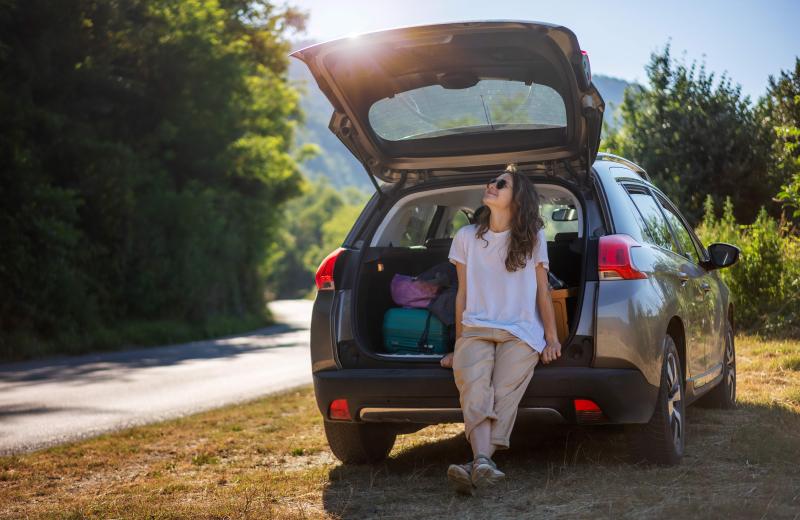Travelling alone requires special attention to safety. Whether it’s your first time or you’re an experienced traveler, everyone can benefit from some solid solo travel safety tips.
Do your research
Before you head off on your trip, check traffic, road, and weather conditions. Plan your route and give yourself plenty of time for breaks if you plan on travelling a long distance. Research where you will be staying so you know what to expect. If you’re planning on doing any outdoor recreational activities, have a map of the area and familiarize yourself with the terrain beforehand.
Make a trip plan and share it with others
Planning ahead is a must. Create a trip plan and leave a copy with family or friends. Be sure to stick to your plan.
Tip: try to arrive during daylight if you are going to a new destination. You will be able to find your accommodation more easily, assess the safety of the area, and if something happens, you will have time to make other arrangements.
Use a reliable vehicle
Before leaving, have your vehicle inspected to make sure it’s mechanically sound. Check all tires, including the spare tire, for condition and pressure. Replace your windshield wiper blades if they are worn or cracked. Check that all lights work. Keep a flashlight, flares, and first aid kit where it can be easily reached in an emergency.
Pack the right gear: The essentials
- Navigation tools: fully charged cell phone, personal locator beacon, compass and/or GPS unit (and know how to use them)
- Food and water
- Sun protection
- Extra clothing
- Flashlights
- First aid supplies
- Fire starter
- Tools (such as a multi-tool, scissors, knife, duct tape, cable ties, screwdriver, pliers, and a small shovel/trowel)
- Emergency shelter
- Signaling device (such as a whistle)
Hiking safety
If you decide to go hiking alone, choose well used trails in popular areas near civilization and never go off the marked path. Always bring water and a warm jacket, even if the weather is warm. Make sure you have the essentials listed above.
Driving safety
People often travel long distances while on vacation which can tempt travelers to keep driving even when tired. Fatigue is a form of impairment, so don’t try to push on if you start to feel fatigued. Rest stops are also important and stretch breaks can help keep drivers alert by promoting blood circulation. Check Drive BC before you head out on the road.
Making sure you’re prepared before travelling alone will make your trip more enjoyable and ensure you arrive to and from your destination safely.
More resources
- The 10 essentials for hiking and camping - Mountain Equipment Company (MEC)
- Wilderness preparedness and safety tips - Government of BC
- RCMP Summer safe driving tips - Royal Canadian Mounted Police (RCMP)














Comments